The 20 Things You Should Avoid If You Want to Age Well
Avoid these bad habits and feel healthier.

Aging well is a lot like smart financial investing, experts say—it's not about discovering some obscure magical formula but consistent, sensible habits. And the science is pretty clear: Some practices definitely contribute to healthy aging, and others can shorten your lifespan and lower your quality of life. These are the key things you should avoid if you want to age well, according to the experts. If you need to, you can start making simple and effective changes right now.

Poor sleep quality is the #1 factor that will make you age faster, longevity and regenerative medicine doctor Neil Paulvin told CNBC this month. Experts including the National Sleep Foundation say that getting enough sleep reduces your risk of potentially life-shortening illnesses like cancer, heart disease, obesity, diabetes, and dementia. Aim for seven to nine hours a night.

Consuming too much alcohol raises your risk of six types of cancer, the CDC says. It also elevates your level of blood triglycerides, potentially hardening arteries, raising blood pressure, and leading to heart attack or stroke. To reduce your risk of a variety of health problems, experts recommend drinking only in moderation—no more than one drink a day for women, and two drinks a day for men.

Smoking and tobacco use increases your risk for lung cancer, the #1 cause of preventable death in America. Tobacco smoke can also damage the heart and walls of arteries, increasing your risk of heart attack, stroke, and dementia.
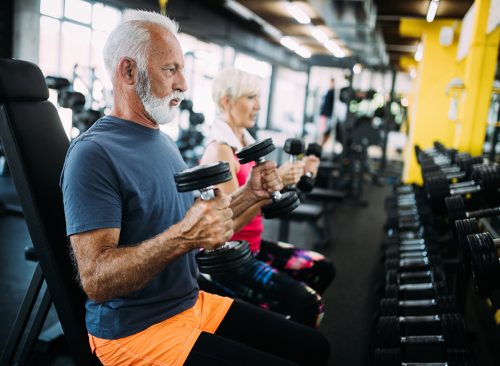
Getting regular exercise has been associated with a lower risk of heart disease, cancer, osteoporosis, dementia—and a longer life overall. In 2021, scientists found that men and women who took more than 9,000 daily steps (about 30 to 45 minutes of exercise most days) were about 70 percent less likely to die early than those who were less active. Experts recommend doing at least 150 minutes of moderate-intensity exercise each week.
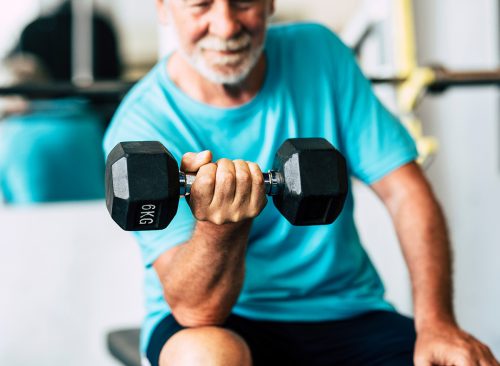
"Walking regularly is associated with many health benefits, but it isn't enough to offset the physiological and functional losses associated with aging," says Cody Sipe, Ph.D., co-founder of the Functional Aging Institute. "Instead, do strength and power training several days per week. Regularly engage in balance exercises or sports that challenge your agility. Perform strenuous activities that make you breathe hard. Together these will improve your health, fitness and function much better than just walking."

A study published in BMJ found that consuming more red meat is associated with an increased risk of dying from eight common diseases (including cancer, diabetes and heart disease)—and from any cause at all. Analyzing health data from 537,000 adults, researchers found that people who consumed the most red meat had a 26 percent higher chance of dying than those who ate the least. People who ate the most white meat, including poultry and fish, were 25 percent less likely to die than people who consumed the least.

"Loneliness can have adverse effects on mental and emotional well-being," says London-based relationship therapist and life coach Nia Williams. "Cultivate social connections through friendships, family, or community involvement."
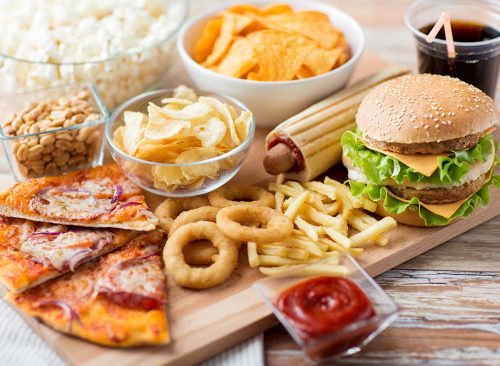
"As a registered dietitian, I recommend avoiding too much processed sugar and highly processed foods," says Jesse Feder, RDN, CPT, a Miami-based dietitian and certified personal trainer. "These foods typically lead to unwanted weight gain, chronic disease, inflammation and unhealthy aging. Instead, I recommend having foods with natural sugars such as fruit or foods sweetened naturally. Additionally, try to limit or avoid highly processed foods and opt for fresh foods. This can help ensure you are not eating a ton of chemicals and/or preservatives."

A 2019 study published in JAMA found a link between a strong sense of purpose in life and a lower risk of dying from any cause after age 50. Researchers tracked about 7,000 adults older than 50 for five years; they found participants who had the lowest life-purpose scores were twice as likely to have died than those with the highest scores.

"Most Americans sit in front of the television all night with their hand in a bag of chips or some other unhealthy food option," says Matt Weik, CSCS, CPT, CSN, a Pennsylvania-based certified personal trainer. "If you're going to relax on the couch and eat something a little more nutritious. Try some yogurt, fruit, oatmeal, or if you want some added protein, a protein bar."

"Many of us sit all day long at work. We sit to drive. We sit to eat. We sit to watch television. If you want to slow the aging process, you need to get up and move throughout the day," says Weik. "Walk to your associate's office rather than sending an email. Take a short walk over your lunch break. Every hour during the day, get up and move your body, even if it's just going to the bathroom or refilling a water bottle."

Having a positive view of aging is associated with living longer. According to one Yale University study, people who had positive self-perceptions about growing older lived 7.5 years longer and had lower rates of Alzheimer's disease than people with more negative views.

"Chronic stress can contribute to various health problems," says Williams. "Practice stress-reduction techniques like meditation, deep breathing, or mindfulness."

"People who are in happier, more satisfying relationships live longer," Dr. Robert Waldinger, director of the Harvard Study of Adult Development, told CNN. "The most important predictor of who was going to be a healthy, happy octogenarian was how satisfied they were in their relationships."
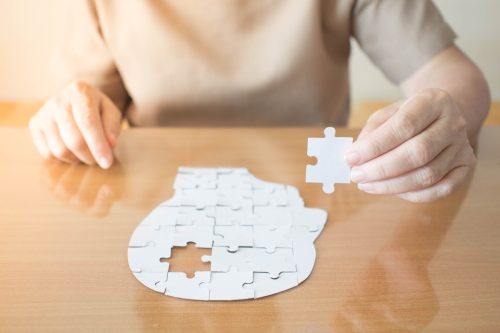
"Physical exercise and critical thinking both forge neural pathways in the brain," says Dr. Brett Osborn, a board-certified neurosurgeon in West Palm Beach, Florida. "There is a component of learning while exercising or working through mental challenges like puzzles, and this process of learning literally rewires the brain." This may prevent the development of degenerative conditions like Alzheimer's and Parkinson's.

"As a middle-aged woman myself, I am all about maintenance and preventative measures," says Mary Alice Mina, MD, a board-certified dermatologist in Atlanta. "My number one habit to start now for beautiful skin as you age is sun protection. This should include sunscreen daily on exposed skin as well as hats, sunglasses and sun protective clothing when outdoors for prolonged periods of time."
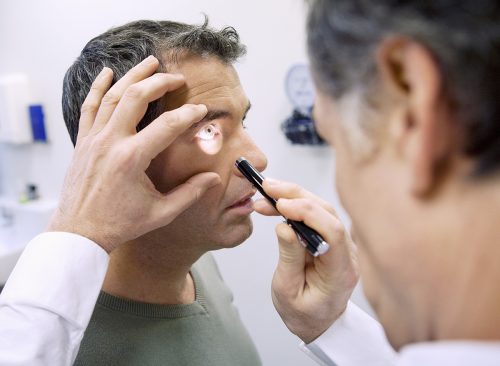
"As we age, it becomes even more important to take our doctor's appointments seriously—regular check-ups help catch any issues early on before they become major problems," says David Seitz, MD, medical director of Ascendant NY. "Make sure you understand why your doctor is recommending certain tests or treatments and ask questions if you don't understand something. It's also a good idea to keep notes of your doctor's visit, so that you can look back if you ever need to remember something. Make sure to follow any instructions from your doctor. Take all medications as prescribed, and ask for help if needed."

"It's no secret that proper nutrition is key for maintaining overall health, but it becomes even more important as we get older," says Seitz. "While there are a lot of myths out there about what the right diet looks like, one thing that all experts agree on is that people should be getting plenty of fruits and vegetables. Eating a variety of produce is essential for obtaining the vitamins, minerals, antioxidants, and fiber our bodies need to stay healthy and strong. When people don't get enough fruits and vegetables in their diet, this can lead to deficiencies that can affect everything from energy levels to immune system health."

"Time is the most valuable currency in life, and everyone is given 24 hours each day. The key is how you go about spending your time. Leaving time for your personal wellness is equally as important as fulfilling life obligations as work, house chores, or caregiving to others," says holistic fitness coach Michelle Chuang. "Prioritize time each day for your well-being, whether it's hitting the gym or leaving five minutes for a quick meditation session."
RELATED: Surprising Signs You've Already Had COVID

"In order to live a well-balanced life, we need to have a financial foundation to help support our needs," says Chuang. "It is important to understand necessities and desires and manage your financial responsibilities mindfully. Similar to entrepreneurship, if you are operating a business that is your life, it is important to run your business profitably so you can continue to grow and flourish."














